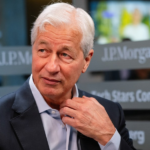“This is further market speculation. No talks are taking place,” a Shell spokesperson said June 25. “As we have said many times before, we are sharply focused on capturing the value in Shell through continuing to focus on performance, discipline, and simplification.”
In May, when asked about BP, Shell CEO Wael Sawan said the bar is set very high for any acquisitions, and that he was focused on using capital to boost share buybacks. Shell is undergoing its own more modest revamp reemphasizing oil and gas.
“I can’t really say anything other than we’re focused on our own business, our strategy, and driving it forward. Obviously, the media likes to speculate about this. Investment bankers like to speculate about this,” Auchincloss said. “But we’re just focused on our own business right now. We’re happy to have launched the [reset] strategy, and we’re going to drive forward and grow cash flow, and that’ll make us strong and independent.”
The current record for oil and gas deals is the 1999 merger of Exxon and Mobil for more than $80 billion. A year prior, BP’s nearly $50 billion acquisition of Amoco set a short-lived record.
But BP has dealt with significant struggles since, including the 2010 Deepwater Horizon tragedy in the Gulf of Mexico and, most recently, the 2020 strategy shift to rapidly grow renewables and cut oil and gas production 40% by 2030 as a bet that global oil demand was peaking.
Auchincloss, who took over in late 2023 after serving as CFO, has dramatically changed the strategy going forward, doubling down on oil and gas investments from the United States to the United Arab Emirates—both of which see crossover with Shell, including existing partnerships in the U.S. Gulf.
“We just chased too much. We should have narrowed that,” Auchincloss said. “That’s obviously what I’ve done now. I think the last thing I’d say is stick with what you’re good at and continue to grow that as you build new businesses.”
And BP chairman Helge Lund, who strongly supported BP’s push into energy transition businesses, will step down, most likely in 2026, according to the company.
Exxon and Chevron are just about the only other players large enough to buy BP. While their assets may not fit as neatly, either U.S. giant could sell off the parts it doesn’t want to keep.
Shell, meanwhile, has considered selling off some of its chemicals business to shore up capital, which features key assets in Texas, Louisiana, Germany, the U.K., and the Netherlands.









